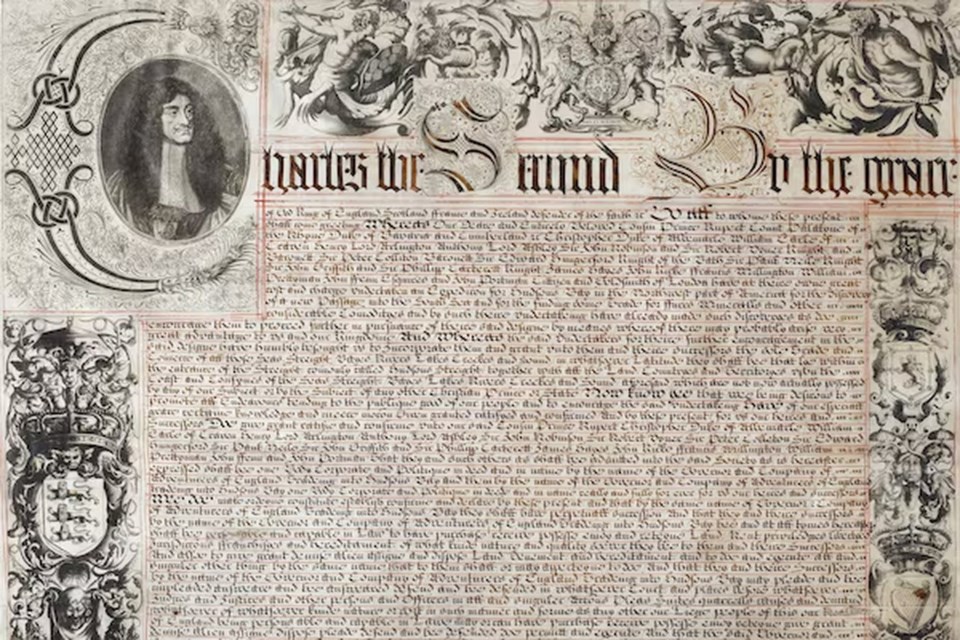Even as Hudson's Bay was granted court permission to auction off 1,700 pieces of art and more than 2,700 artifacts, the Assembly of Manitoba Chiefs is requesting a halt to the sale of items that may belong to or be linked with First Nations people.
A letter by assembly Grand Chief Kyra Wilson to the monitor for Hudson's Bay, which is operating under court protection from creditors under the Companies' Creditors Arrangement Act, said there is "deep concern" over the potential auction of artifacts from its collection.
"Given the nature and scope of HBC’s long-standing relationship with First Nations, it is likely, if not certain, that many of the artifacts slated for auction are of profound cultural, spiritual, and historical significance to First Nations people," Wilson said in the letter on Tuesday.
She said it would be "morally irresponsible" to auction off such items without consulting First Nations.
It is still unclear what specific artifacts could be included in the auction beyond the 355-year-old royal charter that launched the company. Although Ontario Superior Court judge Peter Osborne granted Hudson's Bay permission to proceed with the auction on Thursday afternoon, the company will have to return to court to explain further details of the sale before it goes ahead.
In addition to halting the sale or transfer of artifacts with possible links to First Nations, Wilson requested the full catalogue of items being considered for liquidation be made public.
She also said there should be a First Nations-led review process.
Speaking in an interview, Wilson said Thursday that Hudson's Bay hasn't provided the assembly with a list of items it would look to sell. She said the catalogue could include "sacred items" such as pipes or drums that were taken from First Nations generations ago.
"It's so important that these sacred items come back to our people. There is a connection there," said Wilson.
"These sacred items are a part of who we are. Obviously, there is a colonial history with HBC and some of these items were actually taken without consent."
Hudson's Bay announced Wednesday it will liquidate all of its remaining stores and has previously said an auction "is the most transparent, fair and efficient approach to monetize the art collection while recognizing and protecting its cultural and historical significance."
But Wilson said items that carry cultural significance to First Nations are "not just something that we give away."
"They carry so much history and so much of a connection to who we are," she said.
"It is about the dignity and respect of who we are."
Others have asked the company to transfer its royal charter to a public archival institution such as the Archives of Manitoba to ensure its preservation, rather than risk it being sold to a private buyer.
The charter, granted by King Charles II in 1670, is "one of the most significant archival documents that exists in Canada," said Cody Groat, chair of the Canada Advisory Committee for Memory of the World, which is under the umbrella of the Canadian Commission for UNESCO.
Groat called the document "foundational" to discussions around political governance in Canada and treaty negotiations with Indigenous people.
That's because the charter, which established Hudson's Bay as a fur trading company, also granted it "semi-sovereign rights" which allowed it to operate both "as a business entity and as a colonial government at the same time," Groat said.
"So when we look at this, it's not just a document that established a business. It's a document that really created a unique political colonial structure in Canada."
Other Hudson's Bay artifacts have previously been donated to the Archives of Manitoba. In 2007, those received UNESCO's Memory of the World designation, meant to safeguard documents of historical and cultural importance.
But the charter, which has remained in the company's possession, hasn't received that recognition.
Groat said that to be designated, an item must be assessed to have been properly preserved according to archival conservation standards, and the general public must have reasonable access to it.
"What we're calling for is a recognition that this should not be viewed as just another corporate asset," he said.
"If a private corporation buys it, it could be designated, but it entering a public institution is kind of how we know it's going to be preserved in a way that it ought to be preserved."
— With files from Tara Deschamps
This report by The Canadian Press was first published April 24, 2025.
Sammy Hudes, The Canadian Press



